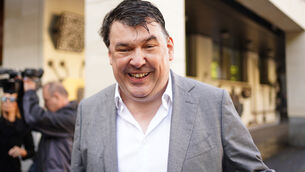Every cloud has a silver lining, even this big black disruptive one
The type who used to be called wealth managers until parity of poverty broke out and “wealth” became a dirty word.
A major insurance company from Down Under had brought the highest performers of its customers among these financial advisors to Ireland as a Goodonya or Attaboy.















